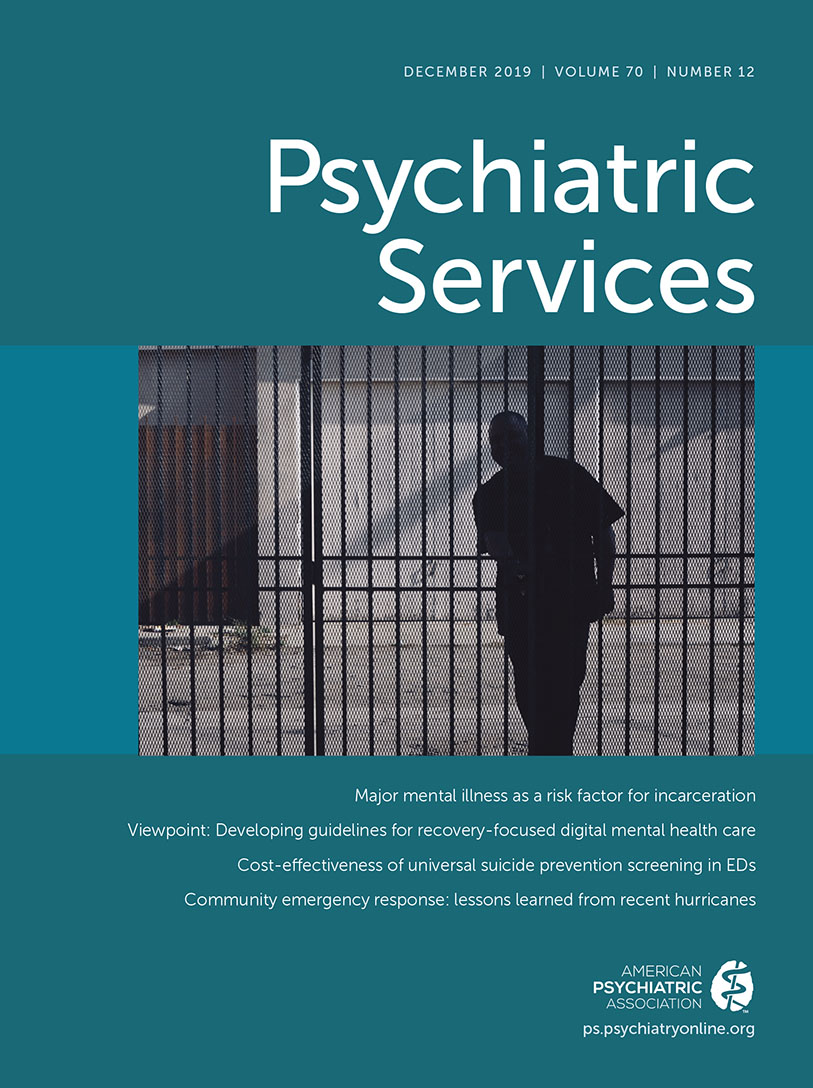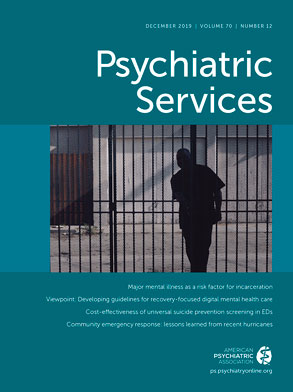Individuals with serious mental illness are almost twice as likely to smoke tobacco as individuals without serious mental illness, yet smoking cessation counseling for this population is rarely prioritized. Evidence suggests, however, that smoking cessation interventions can be particularly effective when initiated during hospitalizations and that psychiatric patients benefit from these services. Compelled by this significant inequity in health services, in 2018 we developed and piloted a smoking cessation counseling program for an inpatient psychiatry unit at a safety-net hospital, Zuckerberg San Francisco General Hospital (ZSFG).
We began by investigating the state of smoking cessation counseling on all inpatient units at ZSFG. We found that on the medical and surgical units a dedicated team of licensed vocational nurses provided a brief intervention for nearly all patients identified as smokers. In contrast, on the psychiatric units, less than 10% of smokers received comparable counseling, and there were no dedicated providers to offer this counseling. We initially aimed to expand the existing medical-surgical program to include psychiatric patients; however, the program staff ultimately felt unprepared to work with patients on a locked psychiatric unit. Thus, in consultation with the psychiatry leadership team, we decided to create a smoking cessation program specifically for inpatient psychiatry using our current providers as counselors.
To create this program, we identified an inpatient psychiatry nurse champion on one of our 22-bed, locked psychiatric units and worked with nursing leadership to carve out 3–4 hours per week for this champion to focus on smoking cessation counseling. We collaborated with the existing medical-surgical smoking cessation counselors to provide training for our champion in delivering evidence-based smoking cessation practices, which included education materials, pharmacologic support, and referrals to outpatient resources. Given the severity of psychiatric illness at ZSFG, we created a flowchart specific to our patient population to assist our nurse champion in identifying, prioritizing, and tracking individuals for counseling. This process facilitated revisiting patients periodically throughout their hospitalization as their psychiatric symptoms decreased, provided hands-on teaching, and offered direct assistance in seeking outpatient referrals via a smoking cessation hotline. For patients interested in pharmacologic treatment, the primary psychiatrist was alerted, through an immediate text page (beeper), to initiate treatment, if possible.
An additional component of our project involved addressing common provider misperceptions about the value of smoking cessation interventions for patients with serious mental illness. We hypothesized that provider buy-in would improve the nurse champion’s success in engaging participants and in providing effective counseling.
To evaluate baseline provider attitudes and practices, we conducted a preprogram survey of 44 inpatient psychiatric providers (occupational therapists, social workers, nurses, pharmacists, and physicians). Survey results revealed that most of our providers did not believe smoking cessation counseling was a worthwhile part of their practice and that they had low confidence in their ability to provide counseling. Comments included, “Smoking is often the only thing they [psychiatric patients] have to look forward to,” and “There are other priorities to address on an inpatient psychiatry unit like substance abuse counseling and reducing self-harm behaviors and psychotic symptoms.”
To address these concerns, we held several short educational sessions during staff meetings in order to inform providers of the project and the importance of smoking cessation counseling for psychiatric patients. We followed up by email with periodic project updates.
Over the course of 4 months, the percentage of patients offered smoking cessation counseling on the inpatient psychiatric unit increased from 10% to 80%. Provider beliefs in the importance of smoking cessation counseling for psychiatric patients also improved, from an initial average of 3.6 to a postintervention average of 4.3 on a 5-point Likert scale. Postintervention, most providers reported feeling that the smoking cessation counseling service was a worthwhile addition to the unit.
Goals for the future include expanding the service to our other psychiatric units, collaborating with discharged patients’ community providers to continue counseling, and tracking patient outcomes. Of note, because of a recent hospitalwide implementation of a new electronic health record, this program was placed on hold, with a plan to resume once staff feel comfortable with the new system and unit workflow.
For the health system, this project highlighted an inequity in services available to psychiatric patients and a feasible intervention to address it. We believe our intervention is an initial step toward decreasing smoking-related morbidity and mortality among patients with serious mental illness and one that could be implemented at similar safety-net hospitals.

